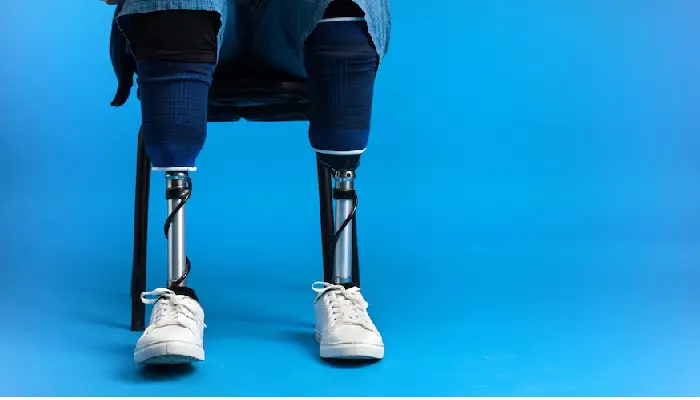Hip replacement surgery is a common procedure that offers relief to those suffering from chronic hip pain, stiffness, or reduced mobility. While hip replacement surgery can dramatically improve a patient’s quality of life, understanding the recovery process is essential to set realistic expectations and achieve the best possible outcomes. Additionally, for individuals exploring advanced orthopedic solutions, robotic knee replacement surgery is increasingly recognized for its precision and efficacy.
What To Expect After Hip Replacement Surgery?
The recovery timeline after robotic knee replacement surgery varies from person to person and depends on factors such as age, overall health, and adherence to post-operative care. Typically, the recovery journey is divided into several phases:
Immediate Post-Surgery Recovery
The first 48 to 72 hours after surgery are focused on managing pain, reducing swelling, and initiating movement. Patients are encouraged to start walking with the help of a walker or crutches under the supervision of a physical therapist. Early mobility is crucial to prevent complications such as blood clots.
Key Activities:
- Pain management with prescribed medications
- Gradual introduction of light exercises to restore mobility
- Monitoring for potential complications like infections
Early Recovery Phase
During the first month, patients work on improving their range of motion and strengthening the muscles around the hip joint. Physical therapy sessions play a vital role in guiding recovery.
Tips for Progress:
- Attend all scheduled physical therapy sessions
- Follow recommended home exercise routines
- Avoid activities that put excessive strain on the hip joint
Intermediate Recovery Phase
In this stage, most patients notice significant improvements in mobility and pain reduction. Walking aids may no longer be necessary, and patients can gradually return to light daily activities. However, rigorous activities and high-impact sports should still be avoided.
Goals:
- Strengthen hip muscles for better joint support
- Improve balance and coordination
- Transition to normal walking without assistive devices
Factors That Influence Recovery Time
Type of Surgery
Minimally invasive techniques, including robotic-assisted procedures like robotic knee replacement surgery, have set a new standard in orthopedic care. While these technologies are often used for knee replacements, they’ve also improved surgical precision in hip replacement procedures, leading to quicker recoveries and better outcomes.
Age and Health Status
Younger, healthier patients tend to recover faster. Pre-existing conditions such as diabetes, obesity, or cardiovascular issues can prolong recovery time.
Commitment to Rehabilitation
Active participation in physical therapy and adherence to post-operative instructions significantly impact the speed and success of recovery.
Advantages Of Robotic-Assisted Surgery
- Enhanced Precision: Robotic systems create detailed 3D maps of the joint, ensuring implants are perfectly aligned.
- Reduced Pain and Blood Loss: Minimally invasive techniques decrease tissue damage, leading to a smoother recovery process.
- Faster Recovery: Patients undergoing robotic-assisted procedures often experience shorter hospital stays and quicker returns to daily activities.
For patients undergoing both knee and hip replacements, robotic-assisted surgery can lead to a consistent and efficient recovery process, offering renewed mobility and quality of life.
Tips for a Successful Recovery
Follow Medical Advice
Adhering to your surgeon’s and physical therapist’s instructions is vital. This includes taking medications as prescribed, attending follow-up appointments, and adhering to activity restrictions.
Stay Active
While rest is important, incorporating light exercises such as walking or swimming (once approved by your doctor) helps improve circulation, strengthen muscles, and speed up recovery.
Maintain a Healthy Diet
Proper nutrition supports healing and reduces inflammation. Focus on a diet rich in lean proteins, whole grains, fruits, and vegetables.
Avoid Risky Movements
Certain activities, such as bending at the waist beyond 90 degrees or crossing your legs, can strain the new hip joint. Always follow your therapist’s guidance to prevent dislocation or injury.
Comparing Hip And Knee Replacement Recovery
While hip replacement recovery typically progresses faster than knee replacement recovery, both procedures share similarities. Patients undergoing robotic knee replacement surgery, for instance, benefit from precise alignment and minimal invasiveness, which also applies to robotic-assisted hip replacements. Understanding these parallels can help patients set realistic expectations for each type of surgery.
Key Differences:
- Hip replacements often allow for earlier mobility compared to knee replacements.
- Knee replacements may involve longer periods of stiffness and swelling.
Conclusion
Recovering from hip replacement surgery is a gradual process that requires patience, commitment, and proper care. By understanding the recovery phases, following medical advice, and leveraging advanced surgical options like robotic knee replacement surgery, patients can achieve excellent outcomes. Whether it’s a hip or knee replacement, the goal remains the same: restoring mobility and improving the quality of life for those who need it most.

Marian Shields, a dynamic marketing expert, orchestrates brand narratives with finesse and insight. With a keen understanding of consumer behavior and market dynamics, Marian navigates the ever-changing landscape of marketing strategy, crafting compelling campaigns that resonate with audiences worldwide. Through her strategic prowess and creative vision, she helps businesses of all sizes unlock their full potential and achieve tangible results in the competitive marketplace.





